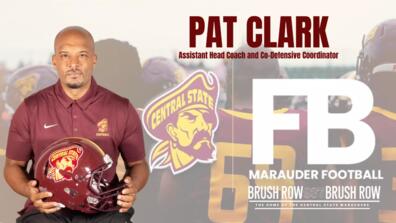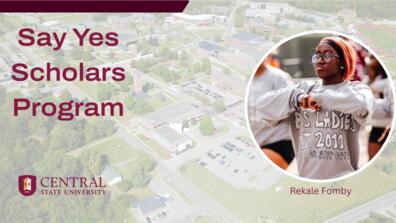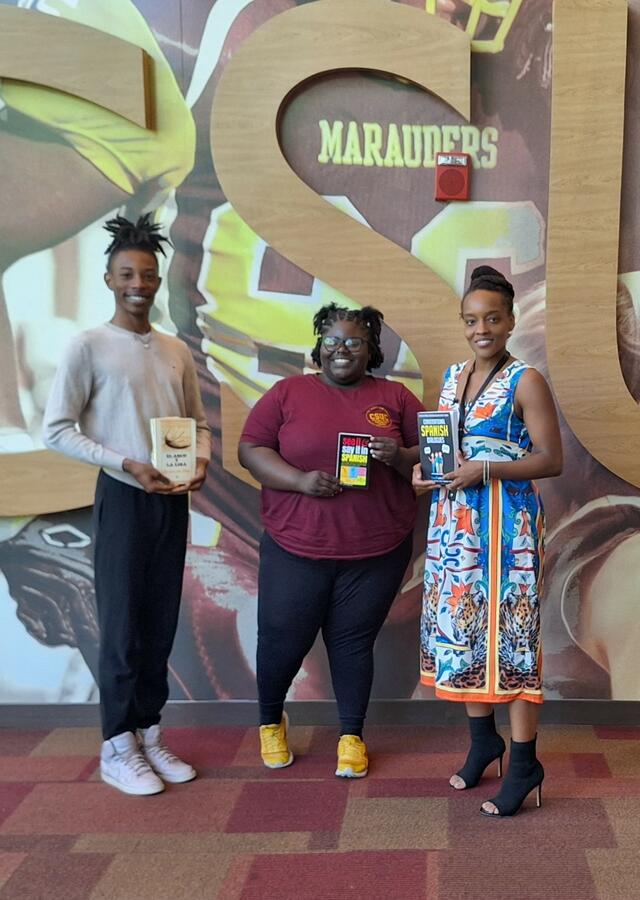
Opening doors through Spanish language learning
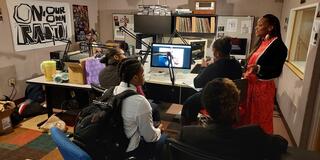
Above: Dr. Tiffanie Clark facilitates a virtual language exchange in Spanish and English between Central State University student and students from La Universidad Tecnológica de Chocó.
Faculty Spotlight: Dr. Tiffanie Clark
Assistant Teaching Professor, Spanish I and II
College of Humanities, Arts, Social Sciences, and Education
Tiffanie Clark, Ph.D., who teaches Spanish at Central State University (CSU), is known to use innovative tools and experiences to foster learning in and out of the classroom.
Hailing from Canton, Ohio, Dr. Clark’s path began in a middle-class household where she was introduced to Spanish in middle school. Without the benefit of formal high school classes, her self-motivation led her to immerse herself in the language. Her passion flourished as she encountered diverse Spanish-speaking communities after moving to Columbus.

Originally a pre-med student at Miami University, Dr. Clark’s academic trajectory shifted after a pivotal moment with her mentor, Dr. José Dominguez. His encouragement to pursue Spanish as a major led her to immersive study-abroad experiences in Mexico and Spain, where she gained fluency and a profound appreciation for Latin American and Spanish cultures. Dr. Clark went on to earn a Ph.D. in Latin American Literature from the University of Cincinnati.
Her teaching philosophy is rooted in empowerment. Dr. Clark sees teaching Spanish at Central State University — a historically Black university (HBCU) — as an opportunity to harness the cultural bilingualism many of her students already possess. She notes that while her students excel in picking up the rhythms and pronunciations of Spanish, building their confidence is key. To address this, she incorporates affirmations in Spanish into her classes, using language as a tool to build self-assurance alongside linguistic skills.
“I struggled with confidence all my life,” she said. “It’s not that they can’t learn; it’s that they think they can’t do it."
"I’m teaching them to be confident in themselves and what they can do with the language.”
Options include, but are not limited to, translating movies, designing graphics for Spanish-speaking audiences or becoming an immigration attorney.
“We never know how this language is going to impact our lives,” Dr. Clark said.
Dr. Clark, a connector and visionary, dreams of expanding CSU's Spanish program. Her vision is to make it a beacon for language learning at HBCUs, incorporating practical tracks in translation, interpretation and medical Spanish. She also envisions offering study-abroad opportunities in Afro-Latin American and Indigenous communities, a future that promises exciting possibilities for language education at CSU.
“My next dream is to write a book called ‘Afro Spanish’ to use at Central State and other HBCUs, exploring images of Black life in Latin America and the U.S.,” she said. “We don’t always see ourselves in different cultures. By learning another language, you open the door to endless opportunities — becoming an interpreter, translating films or even uncovering and sharing untold stories from other cultures.”
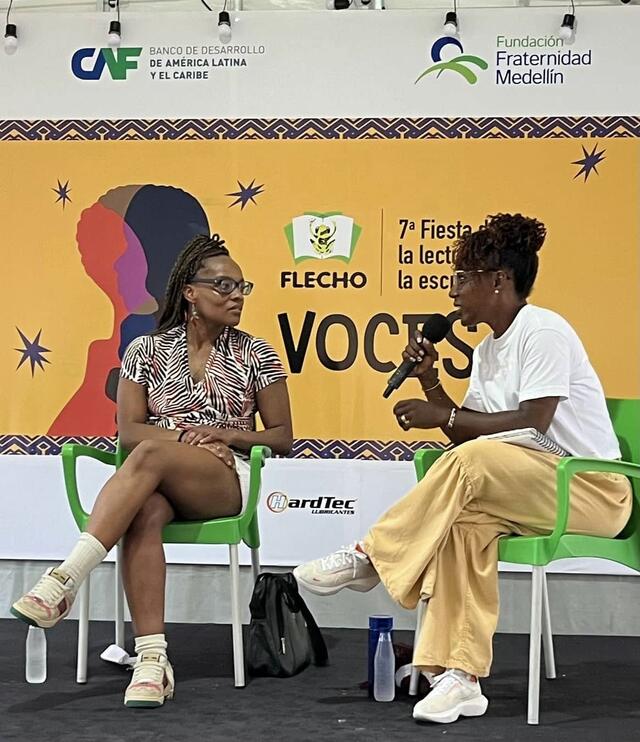
Dr. Clark reiterated her low confidence as she started learning Spanish. Now, she is the accomplished author of Central Americans in Movement: A Diasporic Revival of Poesia Comprometida. This dissertation explores socio-politically engaged poetry by contemporary Central American diaspora writers in the United States. This interdisciplinary study analyzes the works of Cynthia Guardado, Alexandra Lytton Regalado, Ilka Oliva Corado and Javier Zamora, comparing their themes and styles with mid-20th-century poesia comprometida by iconic poets such as Claribel Alegría and Roque Dalton. Through theories of diaspora and hybridity, Dr. Clark investigates how these authors' diasporic experiences shaped their poetic revival of sociopolitical engagement, weaving together literature, migration and cultural identity.
“This little Black girl from Canton, who knew nothing about Spanish, was able to bring to light an unknown Costa Rican author. Maybe (my students) will do that, too,” she said.
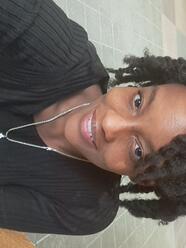
It’s like having two different souls. It’s like I have a Latin American soul and a North American soul. .. It’s a rich life. I feel culturally rich.
Tiffanie Clark, Ph.D.Assistant Teaching Professor, Spanish
Like their professor, Marauders can take their Spanish learning to open doors to new opportunities. Dr. Clark has served local communities as a translator in hospitals and people’s homes.
“It was a very impactful thing, just seeing the experiences of Latin American people who come to this country,” she said. “I was happy to be an intermediary, to be the voice of someone else when they can’t speak. I realized how powerful it is to step in and out of different worlds.
“When you speak different languages, that’s what you do. People see things differently. It’s like having two different souls. It’s like I have a Latin American soul and a North American soul. Growing up Black, we also are bilingual in the way we speak at home. As Black people, we grow up with a strong sense of hybridity, living in two separate worlds. In the professional world, we need to fit into a world where whiteness is still seen as the best and greatest thing. In the marginal world, we have our own way of speaking. It’s a rich life. I feel culturally rich.”
She works tirelessly to create an engaging and inclusive environment, such as by giving flowers to students to thank them for their commitment to learning and designing programs that foster a collective spirit. Michael Gormley, chair of the Communications Department, recently shared, “I noticed all her students walking out of class with flowers in hand — a beautiful example of how Dr. Clark goes above and beyond to make her students feel valued.”
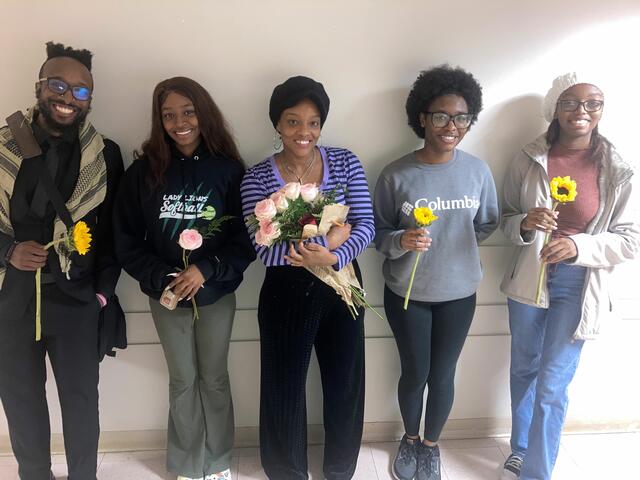
As she builds the Spanish program at CSU, Dr. Clark envisions a future where students graduate fluent in Spanish, culturally enriched and empowered to make global connections. Through her work, she inspires her students — and the broader CSU community — to embrace the transformative power of language and culture.

